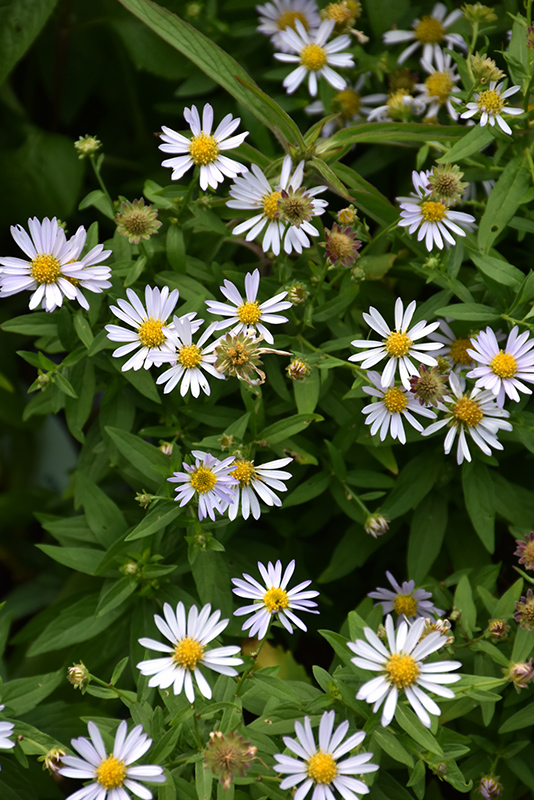Height: 30 inches
Spread: 30 inches
Sunlight:
![]()
![]()
Hardiness Zone: 4
Other Names: False Aster, False Chamomile, Doll's Daisy
Description:
A perfect choice for a garden display of lovely, pale lilac blooms; a smaller more compact variety that is virtually smothered in beautiful daisy-like flowers from late summer into fall; attracts hummingbirds and bees; very adaptable and hardy
Ornamental Features
Dwarf Boltonia is smothered in stunning clusters of lightly-scented lilac purple daisy flowers with gold eyes at the ends of the stems from late summer to early fall. The flowers are excellent for cutting. Its pointy leaves emerge light green in spring, turning forest green in color. The foliage often turns yellow in fall.
Landscape Attributes
Dwarf Boltonia is a dense herbaceous perennial with a more or less rounded form. It brings an extremely fine and delicate texture to the garden composition and should be used to full effect.
This is a relatively low maintenance plant, and should only be pruned after flowering to avoid removing any of the current season's flowers. It is a good choice for attracting bees, butterflies and hummingbirds to your yard. It has no significant negative characteristics.
Dwarf Boltonia is recommended for the following landscape applications;
- Accent
- Mass Planting
- General Garden Use
- Naturalizing And Woodland Gardens
Planting & Growing
Dwarf Boltonia will grow to be about 24 inches tall at maturity, with a spread of 30 inches. It grows at a medium rate, and under ideal conditions can be expected to live for approximately 10 years. As an herbaceous perennial, this plant will usually die back to the crown each winter, and will regrow from the base each spring. Be careful not to disturb the crown in late winter when it may not be readily seen!
This plant does best in full sun to partial shade. It does best in average to evenly moist conditions, but will not tolerate standing water. It may require supplemental watering during periods of drought or extended heat. It is not particular as to soil type or pH. It is highly tolerant of urban pollution and will even thrive in inner city environments. This is a selection of a native North American species.

